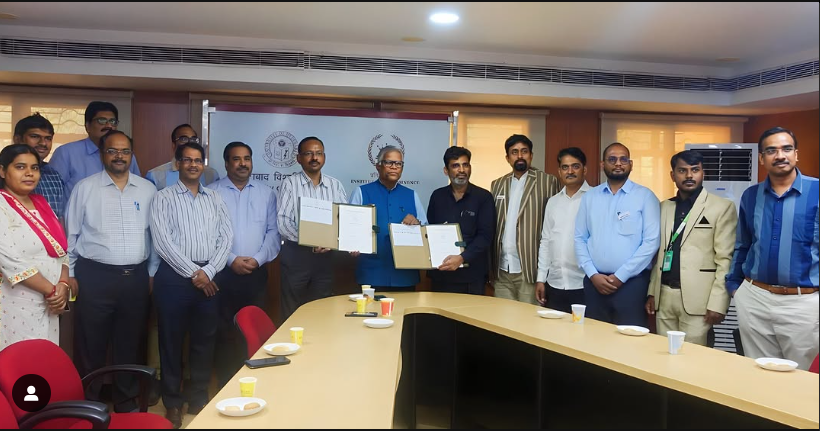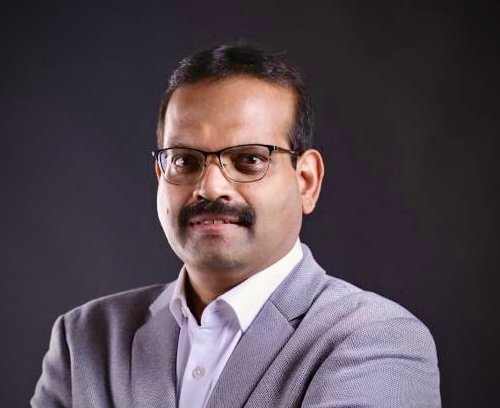Co-authored by Amit Patjoshi, CEO, Palladium India and Biswajit Behera, Associate Director, Palladium India
India’s export economy has great potential in the floriculture sector, and FPOs are leading the way in harnessing this potential. India’s floriculture FPOs can have a significant impact on increasing exports and empowering smallholder farmers, particularly women in rural areas, by embracing climate-smart practices, improving infrastructure, and strengthening market connections.
Floriculture is a rapidly emerging sector in India, commonly referred to as a “sunrise sector” due to its immense potential for income generation and employment creation, especially for small and marginal farmers, many of whom are women. The Indian floriculture market is projected to reach a volume of approximately $5.9 billion by 2030, growing at a compounded annual growth rate (CAGR) of around 7-8 per cent. The sector primarily deals with two types of flowers: cut flowers and loose flowers, with a significant portion of sales occurring through organised retail.
India’s export performance in floriculture has been commendable, though there is still much-untapped potential. In 2023, India exported around 19,600 metric tonnes of floriculture products, worth approximately $86 million. Major export destinations include the United States, UAE, Germany, Canada, Japan, and Malaysia. However, despite the promising figures, the volume of floriculture exports remains modest in comparison to the country’s production capacity.
Geographically, Andhra Pradesh and Tamil Nadu lead the country’s floriculture production, accounting for more than 35 per cent of total production. Other key states include Karnataka, West Bengal, Uttar Pradesh, Gujarat, Maharashtra, and Odisha. These latter states not only produce significant quantities of flowers but also have the potential to serve international markets if supported by improved infrastructure, value chains, and export-oriented business models.
Odisha: Strengthening FPOs Value Chain
Odisha has been an emerging player in India’s floriculture sector, with key districts such as Sambalpur, Rayagada, Ganjam, Puri, Bhadrak, and Angul being major centres for flower cultivation. Farmers in these districts primarily grow marigolds and roses, catering to the local market. However, the state’s floriculture potential extends beyond domestic sales, particularly through the involvement of Farmer Producer Organizations (FPOs).
FPOs have become essential in strengthening the floriculture value chain in Odisha. The first floriculture FPO in the state was established in 2021 by Palladium, in collaboration with NABARD. This initiative trained around 650 women farmers in enhanced production techniques, post-harvest practices, and business planning to cater to local market demands. However, to meet export market requirements, significant challenges remain, particularly related to climate variability, market fluctuations, and a lack of infrastructure.
The floriculture value chain in Odisha involves multiple stakeholders, including smallholder farmers, FPOs, research institutions, and government agencies. FPOs play a critical role by aggregating the produce of small and marginal farmers, helping them achieve economies of scale, access to markets, and technical support. By working collectively, farmers under FPOs can reduce production costs, adopt advanced technologies for post-harvest management, processing and value-addition in floriculture value chains and negotiate better prices in both local and international markets. Furthermore, FPOs can facilitate partnerships with research institutes to drive innovation and improve yields, while also ensuring that sustainable practices are adopted to combat climate-related challenges.
Business models through FPOs
The business model for floriculture exports through FPOs hinges on the role of FPOs, which serve as the link between small farmers and the broader market. The aggregation of products through FPOs ensures that smallholder farmers, who individually may lack the resources or scale to export, can still participate in international markets.
The primary steps in the floriculture export business model include:
1. Production: FPOs provide access to high-quality seeds, fertilisers, and technical knowledge to improve yield and ensure the quality of flowers meets export standards.
2. Aggregation and Processing: FPOs collect the flowers from member farmers and handle post-harvest processing such as grading, packaging, and storage. This ensures that the flowers are of a uniform standard, which is critical for export.
3. Logistics: FPOs manage the transportation of flowers to international markets. In the case of cut flowers, this often involves specialised cold storage and transportation to maintain freshness.
4. Marketing and Export: FPOs, in collaboration with export agencies, identify international markets, negotiate prices, and handle the regulatory requirements of different countries.
FPOs also play a crucial role in ensuring that farmers receive fair prices for their produce by eliminating intermediaries and improving their bargaining power. In the case of Odisha, where floriculture is still in its developmental phase, the business model emphasises capacity building, market linkages, and scientific research to enhance production and ensure that smallholder farmers can access international markets.
Recently, Palladium has successfully facilitated an agreement between the Sabuja Sanatanpali Farmer Producer Company Limited and the Council of Scientific and Industrial Research (CSIR), National Botanical Research Institute, Lucknow. This partnership focuses on promoting scientific research in floriculture, including plant-environment interactions and biotechnological approaches for improving plant quality. Such collaborations are pivotal in helping FPOs adapt to climate challenges and improve production levels, ensuring the competitiveness of Odisha’s floriculture in export markets.
To read more click on: https://agrospectrumindia.com/e-magazine
Co-authored by Amit Patjoshi, CEO, Palladium India















